|
Natural England have now published their 2023 wildlife licence data, including the complete figures for the lethal control of wild birds. (Please see at the end of this post for a link to the data)
As I begin to trawl through it all, I can see that there remain significant areas of concern... Songbird hunting for 'sport' One of my particular bugbears is the issuing of licences to hunt songbirds (including some red-listed species) using falcons. I highlighted this matter last year and at the time I implored Natural England to reconsider these particular licences which are extremely contentious and have little public support. Unfortunately they were resolute in keeping these controversial licences active, although they hinted at a potential change of policy when they told me there was no plan to reform them "in the short term" - nevertheless through 2023 they continued to issue them - with the result that a dozen licences were approved to hunt skylarks, potentially resulting in the deaths of more than 100 of these iconic and rare birds. Skylarks are just one of the species that can be legally hunted by falconers in England, the list of 'quarry' species includes many of high conservation concern, including Fieldfare, Redwing, Meadow Pipit, Mistle Thrush and more. Natural England's refusal to acknowledge public disquiet over these archaic licences is cavalier and not a good look for them. Cormorant hunting There are still high levels of Cormorant culling, 2023 seeing an increase in licences over the previous couple of years (a whopping 439 licences were issued to cull them last year, which could affect huge numbers of these impressive birds). This is a real worry; with little or no monitoring of these licences, it's pretty much a free-for-all hunting spree in the countryside. Nobody really knows how many of the birds might have been shot. These particular licences are handed out liberally, and whether or not you support the calls from anglers and fisheries to 'control' Cormorants, the number of birds that can be killed each year is clearly far too high. I don't think it will be long before we notice Cormorants disappearing from our waterways altogether in some areas. And before anyone attempts to justify the culls, I'll just remind them of the fate of the Passenger Pigeon..... Gull eggs for human consumption I'm now waiting on Natural England's decision over the licences allowing the abhorrent harvesting of Black-headed gull eggs for human consumption - in the past couple of years we have seen a reduction in the numbers of these gull egg licences, thanks to our campaign, but last year two still remained in place in Yorkshire, which permitted the taking and selling of thousands of eggs. I have strongly condemned these licences and have been trying to persuade Natural England to withdraw them all. Humans don't need to eat the eggs of wild birds, let alone those in steep population decline - it's an outdated practice that should be consigned to history. Watch this space for an update on this, as I have been told there is no decision on 2024 licences just yet. Killing Starlings for 'air safety' Killing birds for reasons of 'air safety' also raises many questions. For example a licence was issued last year to shoot 100 starlings (a red-listed species) for reasons of 'air safety' on Merseyside, with another licence permitting the shooting of 50 more starlings at an airport in Lancashire. So many species appear on these 'air safety' licences, officially permitting the culling of large numbers of rare wild birds. Meanwhile, common species such as the wood pigeon are targeted in extraordinarily large numbers under these licences, an example being one single licence that approved the shooting of 1000 of these birds, also on Merseyside. Other concerns I've only just scratched the surface of the data, but already there are some other glaring stats to look into, such as the single licence that enabled the applicant to 'take, damage or destroy' several hundred Mallard, Coot and Moorhen eggs. Data available because of our campaign All of this data is in the public domain thanks to our campaign - as it has been since I first persuaded Natural England to publish it back in 2018. Prior to that it was hidden away out of public view - and no wonder as the figures revealed a catalogue of killing and culling in the English countryside. Trawling through the data since then we've succeeded in highlighting anomalies and advising Natural England where wildlife culling has been licensed without due consideration. With regard to many species of wild birds, some would say the killing has been practically out of control for several years. Natural England had been issuing lethal control licences often for spurious reasons and we have questioned that and succeeded in pushing for transparency, accountability and change. There's no doubt in my mind that thousands of birds lives have been saved thanks to pressure from our campaign. The licence data is free to download and view, please do have a good look - it is up to us to highlight any inconsistencies. I am happy to raise questions directly with Natural England if you let me know of your concerns. Email me ([email protected]) and I'll do my best to follow up on it. NatureScot I'll also be in touch with NatureScot again soon, as they are due to publish their own licence data - for Scotland - in due course. With NatureScot's highly dubious record of enabling the killing of unfathomably huge numbers of gulls north of the border, that should make interesting reading... So, I'll be delving into the data further, it makes for depressing reading but at least we can all now see it, and ask questions over the 'management' of nature by the authorities. Natural England data is HERE Our campaign petition is HERE
15 Comments
* The RSPB culled 345 moles at one of their reserves in 2022.
* In this age of rapidly diminishing wildlife, shouldn't the RSPB be setting an example - not joining in with the mass killing of native wildlife? The RSPB and the mass mole cull The RSPB culled the moles at one their 200+ reserves. Their annual vertebrate control summary published in December, states that they killed 345 moles at a single location, though they don't specify which one, (it might be helpful, for clarity and transparency, for the RSPB to include locations in their data...) The reason they give for culling the unfortunate mammals is a "listeriosis risk in cattle". Now, here's where the whole thing gets messy because there are many differing opinions over the science behind the claim that moles are a significant cause of listeriosis in farm animals, some suggesting that the risk is overestimated. The soil from a mole hill can contain listeria bacteria, and if it contaminates grass consumed by animals, there is a potential risk that the animals can contract the disease. Some say this risk can be mitigated simply by flattening the mole hills as they appear, many others say that moles can be moved along harmlessly by using simple cost-effective sonar deterrents - or just left alone. Futile exercise Regardless of the RSPB's motives for killing the moles, it's pretty obvious, I think, that removing that many moles from a location will merely encourage other moles to recolonize the area - which means more molehills and more "risk" - whether that risk is real or not. So it's perhaps something of a futile exercise, albeit one resulting in masses of dead wildlife, especially if the lethal control is ongoing. The RSPB should know better and I wonder who advised them to carry out the cull, which many would say was unnecessary - and unethical. Not just moles.... The RSPB say that they "see the killing or removal of vertebrates as a matter of last resort..." but nevertheless they saw fit to cull not just the 345 moles, but many other species too at their reserves, for example 400 foxes and nearly 1000 red deer. We are in the midst of a biodiversity crisis. While culling a few hundred moles might only have a local impact on the conservation status of this animal, the RSPB's decision to kill them remains highly questionable, both ethically and morally. The RSPB no doubt do a great deal of good work across their reserves, but I would suggest that culling hundreds of a single species at one of their sites - in order to pursue what appears to be an experiment in nature management - is lacking moral clarity and is certainly out of touch with current efforts to preserve what survives of our fast diminishing native fauna. There might - rarely - be rational reasons to control some animals in some circumstances, but culling hundreds of moles seems entirely avoidable and unnecessary. More legal protection for moles Many environmentalists agree that moles, one of our most loved native mammals, desperately need more legal protection. Unlicensed lethal control of these diminutive creatures is prohibited in many civilized countries like Germany and Finland, but here in the UK any individual or 'pest controller' can embark on a killing spree with very few restrictions - and no consequences. Moles play an essential part in maintaining a healthy ecosystem and it's high time these amazing animals were afforded more legal protection in this country - then even the likes of the lofty RSPB would need a licence before even contemplating the massacre of our treasured wildlife.
Hi folks,
Just a heads up that I'm expecting Natural England's 2023 wildlife licence data to be released imminently. Last month they told me it was scheduled for the end of February but, perhaps not surprisingly, that didn't happen. It's not unusual for it to be late - and for me to have to chase it up. Anyway I'm asking them again today for a publication date. I'll post a further update when the data comes out and would urge everyone to take a good look when it's available. What will the data reveal....? I don't need to remind you that the annual licence data is in the public domain purely thanks to our campaign - as it has been since I first persuaded Natural England to publish it back in 2018. Prior to that it was hidden away out of public view - and no wonder because the figures revealed a catalogue of mass killing and culling in the English countryside, all officially sanctioned by the government's nature advisory body Natural England. By trawling through the data since that first release, we've succeeded in highlighting anomalies within the lethal control statistics for birds in particular and advising Natural England where wildlife culling has been licensed without due consideration. In some cases, the killing was practically out of control for years. Natural England had been issuing lethal control licences often for spurious reasons, and so I asked questions over the integrity of the licensing system; this led to discussions with them, resulting in more transparency, accountability - and change. There's no doubt in my mind that thousands of birds lives have been saved thanks to pressure from our campaign and all of the wonderful citizens who support it. Incidentally we now have more than 400,000 signatures on the petition, that's a lot of potential people power to harness. Areas of concern It will be interesting to see whether levels of lethal control have fallen, or not. Areas of concern in the past have been high levels of Cormorant culling, licenced hunting of songbirds and the lethal control of various species of gull (though this has been even worse in Scotland and I'm also waiting for the latest figures from NatureScot in due course). RSPB culling wildlife On a separate - but related - note, it's also of great concern to me that the RSPB are still busy killing birds and mammals for various reasons that they try to justify by assuring us all that they only do so "as a matter of last resort". They kill significant numbers of some of our most loved species. For example, in 2022, they killed nearly 1000 Red deer, more than 500 Roe deer, 400 Foxes and - would you believe - 345 moles. Oh, and the RSPB, whose very name suggests it exists to protect birds, also culled more than 300 crows and 175 Greylag geese. I think it's an appalling record and I don't accept that it's in the name of 'conservation'. Defra and the dead whales In other matters, I am still challenging Defra's decision to withhold data relating to cetacean deaths around the UK. They haven't released the figures for stranded whales, dolphins and porpoises for the past five years.... ever since a shocking rise in the numbers raised eyebrows amongst environmentalists and begged many questions. More than 1000 dead cetaceans were washed up on UK beaches in 2018 alone. I think the data should be in the public domain in order to encourage open discussion and debate. Defra seem to think otherwise. I have asked the Information Commissioners Office to look into the matter and I'll have more on this in due course. So, that's the update for now. I'll be in touch again soon (hopefully) when Natural England's data is published. Best, Jase
Good news!
Following some recent communications I had with NatureScot, I can announce that they plan to publish their wildlife licensing data on an annual basis going forward, just like Natural England now does following pressure from our campaign. It will be freely available for public scrutiny. Earlier this year, you might remember, we encouraged NatureScot to publish details of their lethal control licences, following which they released some limited data in August. It didn't reveal much detail, for example no mention of the numbers of wildlife affected under each licence; so I asked them to provide more specifics. They were reticent, saying that "while data on the specific numbers associated with each licence is very informative we concluded that the time taken to process this quantity of data would not be viable and would impede on current licensing demand." However, soon after that, they did release the details - and the shocking scale of lethal control became clear - and rang loud alarm bells, raising many questions over NatureScot's licensing procedures and decision making. In just a few years they had approved licences to kill thousands and thousands of birds and mammals. Little wonder perhaps that they were reticent to share the details. The good news The good news is that we can now look forward to regular declarations of licence data from NatureScot, which will be available for public scrutiny, similar to what we now have from Natural England. This in itself means much more transparency around the system and therefore more accountability over the licences. And all in public view, which is something I've been campaigning for over several years. I believe we have a right to examine this kind of data from governmental bodies, so that we can ask questions and where necessary push for change. More detail Though I haven't got any specific dates yet for the publication of the statistics, I have been told that the data will be collated starting in the new year and it should include licence 'returns' information - that's the actual numbers of birds and animals reportedly killed under each licence. These licence returns generally rely on the honesty and integrity of the licence holder in reporting the figures accurately, but even with that slightly flawed system of monitoring licences, the more information in the public domain the better. NatureScot told me "We plan to publish it [the licence data] annually so we can include the returns data and everyone can see how much lethal control was actually undertaken rather than just the numbers that were licenced. We will start collating that data in the New Year." So it is good news, and thanks everyone for helping to achieve this result. (Meanwhile, there is also a separate ongoing review of species licensing in Scotland, which should hopefully bring other reforms to NatureScot's licensing system. This seems to be the 'investigation' that the first minister referred to a couple of months ago after the lethal control licence data was released. I'm told there should be an update on this review "in the coming weeks") Best, Jase A note on whales... Briefly, on another matter, an update regarding dead whales..... I've been trying to find out how many cetaceans (whales, dolphins, porpoises) have been washing up on our beaches; but Defra (who hold the information for England and Wales) have been less than forthcoming with the numbers. We know there were more than 1000 cetaceans washed up dead and dying around the UK coast in 2018 - an unusually high number - but since then the figures have been kept secret. My hunch, as I've mentioned before, is that the proliferation of wind farm developments is causing havoc to marine ecosystems, and that the ongoing rapid industrialisation of our seas is affecting the delicate sonar of cetaceans causing them to strand. Defra rejected my freedom of information request in which I asked them to share more recent data on whale deaths. I challenged them on this but they have doubled down on their decision. The matter is now with the Information Commissioner’s Office. I'll bring you more on this in due course.
Hi folks,
A quick update for you, as the countdown to the festive season begins, just to let you know that 1) I'm still here, and 2) I am still working on the campaign! It's just been a little quiet of late, which is a good sign as there haven't been any major questions to ask the UK nature agencies since the last updates. Licences and more... However, shortly I will be ensuring that the 2023 wildlife licence data is being prepared by both Natural England and NatureScot, and pushing for publication dates for both data sets. Natural England normally release theirs as early as February (or as late as June!), while NatureScot have yet to confirm how often they will publish theirs going forward, after we successfully pushed them to release a full set of licence data last summer - which revealed some worrying statistics.... On this matter, in the past week or so I've been in touch again with NatureScot to ask for an update on the investigation promised by Scottish first minister Humza Yousaf into the shocking number of wildlife licences issued north of the border. Unfortunately, at the time of writing, my contact at NatureScot hasn't responded to my enquiry, which is frustrating - but I'm persistent as you know and I'll try again next week. While the cynic in me is not expecting there to be any major developments on the investigation, you just never know.... I have also asked them when they plan to publish the next set of licence data. I'll update everyone on this in due course. Black-headed gull eggs Meanwhile, back south of the border, in the new year I'll also seek to clarify with Natural England the situation regarding Black-headed gull eggs after all the anomalies of last year when some eggs still made it on to the open market despite Natural England withdrawing nearly all egg harvesting licences. Until every last licence is withdrawn, we can't know whether eggs are on sale legally or illegally. So that's a task for January. Secrecy over number of whale strandings On a side issue, some of you might know that I have been investigating the rapid increase in cetacean strandings around the UK coastline. Shockingly, there were more than 1000 whales, dolphins and porpoises washed up dead and dying in 2018, as outlined in the CSIP (Cetacean Strandings Investigation Programme) annual report to Defra. Since then the figures have been hidden by both organisations and I wanted to know why. My hunch is that there might be a direct correlation between the rise in whale strandings and the proliferation of offshore wind farm developments; being able to see the figures might shed some light on to the reasons for the increasing mortality rates. But when I asked them in October, neither the CSIP nor Defra would let me see the data. And I wonder why.... Defra point-blank refused my freedom of information request, saying it wasn't in the public interest to share the data, and I've challenged their decision on that. Watch this space because I think there might be some interesting updates on this in due course. For those of you interested in my articles on this subject, most are on my separate Medium.com blog, (click: HERE.) And that's all for now I think. So - for those of you in the UK - I hope you're enjoying the crisp winter weather, and to everyone who follows me, wherever you are: all best wishes and sincere thanks, as always, for your continued support of our campaign! Best, Jase
Pressure from our campaign got the data released - now there is to be a full review of NatureScot's wildlife licences - Scotland's first minister said the lethal control figures "cause us all to pause and reflect" and has promised an investigation.
Last month our campaign successfully pressured NatureScot into releasing its wildlife licensing data into the public domain, so that everyone could see the alarming statistics. I reported on this breakthrough and hailed it as a significant success for our campaign. Fast forward to September and some media outlets finally commented on the shocking figures that the data revealed. It's somewhat grating that none of those reporting the news gave a nod to our campaign, without which they probably wouldn't have the figures in the first place, however it's enough to know that we enabled the wider public to be made aware of the Scottish wildlife culls - and that has always been one of our primary aims. That said, it's still particularly frustrating that some animal welfare organisations have apparently expressed their 'shock' at the figures - in my opinion these animal welfare organisations should have made it their business to know what was going on under their noses, long ago. As some readers will know, NatureScot actually sent me the licence data earlier this year, as part of a freedom of information request, although it took months to persuade them to publish it openly for all to see, which they finally did - and that couldn't have happened without the support and backing of 400,000 people behind our campaign, so well done all. Scottish first minister promises investigation Earlier this month, in response to a parliamentary question raised by Christine Grahame, convener of the cross-party group on animal welfare, the Scottish first minister, Humza Yousaf, promised an 'investigation' into the shocking levels of officially sanctioned killing in Scotland. He said that the numbers cause us all "to pause and to reflect"; he added that the government will undertake a "full review of the species licensing system" and he will ensure that the appropriate cabinet minister investigates the numbers raised. (there's a video clip at the end of this post) I wouldn't be holding your breath though, you see I'm cynical and in my experience it takes more than a little prompting to remind politicians of their promises. But it's a good start. With the successful release of both NatureScot and Natural England licence data, I think we can take a moment to pat ourselves on the back for these major successes of our campaigning. It's been a hard slog, albeit one that has been well worth while - indeed essential - for the benefit of both wildlife welfare and public awareness. The campaign continues So, in achieving another one of our goals, I'm expecting a quieter period for our campaign - but please rest assured that I will continue to keep a watch over the activities of these government nature agencies and I'll be renewing pressure on them when the next set of statistics is due. Natural England generally publish theirs in the first quarter of the year but you might remember that they are sometimes a little 'shy' when it comes to releasing their figures and I've had to cajole them in previous years. I'll also be following up with them regarding the Black-headed gull egg licences before the next harvesting season is due to begin, to ensure that the practice is outlawed. That's all for now but I'll keep everyone in the loop with any developments in the meantime. Best, Jase Link to our campaign: HERE Link to NatureScot data: HERE Link to Natural England data: HERE Below: Christine Grahame, convener of the cross-party group on animal welfare, asks Scotland's first minister about the licences.
Since 2019, NatureScot issued licences to kill:
3307 Ravens, 6507 Brown Hares, 4996 Mountain Hares, 6000 Gannets, 9448 Greylag Geese , 4809 Barnacle Geese.... Following pressure from our campaign, NatureScot has quietly released its detailed licence data into the public domain, in spite of telling me only last month that to process it "would not be viable". NatureScot u-turns on decision Last month, after a lengthy delay, NatureScot finally published a heavily edited set of licence data - but they rejected my call to share more detailed statistics, telling me that "while data on the specific numbers associated with each licence is very informative we concluded that the time taken to process this quantity of data would not be viable and would impede on current licensing demand." On my blog last month, I lamented the fact that NatureScot had declined to follow the lead of Natural England, who, as a result of our campaign, now publish their complete licence data annually. Change of heart... Last week, in an apparent change of heart, NatureScot updated the data on its official website to include a comprehensive set of statistics, including extensive details of its lethal control licences, which affect much of Scotland's wildlife. I only discovered this u-turn by chance, after I contacted NatureScot earlier this week, proposing that I release the figures myself - if they weren't going to. Although the updated data doesn't go as far as listing specific individual licences, we can now access much more detail, including the numbers of birds (and other animals) affected, which is perhaps the most significant data I had originally asked them to publish. So, what brought about NatureScot's sudden change of heart? I think it's safe to say that this positive development happened as a result of the pressure put on them by the good folks supporting our campaign. NatureScot now joins Natural England in publishing its previously hidden licensing data, so that it can be examined by the public. It's a great result. Figures reveal extent of lethal control The figures themselves however are less cause for celebration. With NatureScot overseeing a wide ranging programme of lethal wildlife 'control', Scotland is not a particularly safe place for many species. The Scottish government's nature agency permits the mass killing of many species of birds as well as other forms of wildlife. Although the data suggests that there has been a welcome recent decline in the numbers of some species permitted to be killed, and a reduction in the final reported numbers, for other birds and mammals it's been a different story; for example Carrion Crows, Goosanders and Pink Footed Geese have seen an increase in the numbers killed over a four year period, while Ravens also continue to be killed in significant numbers. For many types of gull there has been a general reduction in the numbers reported to have been killed, though one has to ask the question whether this is due to the mass slaughtering of gulls that was previously facilitated by NatureScot. Gulls were licensed to be killed in particularly high numbers in recent years, so it's not surprising that they present less of a 'problem' now - perhaps there are just not that many left.... The fate of Scotland's Hares Birds aside, the data also includes other animals, and I would draw your attention to the officially sanctioned persecution of Scottish hares.... Brown Hares and Mountain Hares are being killed in their thousands in Scotland, under licences issued by NatureScot. These licences are purportedly only issued for limited reasons including prevention of damage to forestry interests or for "social, economic or environmental purposes" (whatever that means). Nevertheless, NatureScot's licences permit the killing of thousands of hares, more than 11,000 since 2019, which is scandalous given that both Brown Hares and Mountain Hares are in steep and rapid population decline across the UK. In its defence, NatureScot would no doubt point to the lower numbers actually reported as killed on the licence returns, but the data speaks for itself and their licences continue to facilitate the mass slaughter of these increasingly rare mammals. People power So, anyway the data is out - please do take a look, it's important that we examine the statistics that we have worked hard to get released, and thanks to everyone supporting our campaign for helping to make the information available. If there are any specific concerns arising from the data release, do let me know and I will raise them with NatureScot directly. I have (mostly!) good communication with them now, which is another very helpful result of our campaigning. Thanks, as always, for your continued and amazing support. You can examine the updated NatureScot data HERE Meanwhile the campaign continues HERE
NatureScot has published its 2022 licence data - but has concealed key information from the public.
* Scotland's nature agency admitted to issuing more than 2000 bird licences in one year but declined to publish the numbers of birds affected - including the fact that they permitted the unlimited lethal control of several red and amber listed species for 'bird air safety' - and that one licence alone approved the culling of 359 Barnacle Geese. The 'hidden' data that NatureScot decided not to publish - * "As many as required" Lapwing, Curlew, Mute Swan, Starling & more - approved for lethal control * Hundreds of amber listed Barnacle Geese and Pink Footed Geese licensed to be culled * "As many as necessary" chicks of Swallows and Swifts permitted to be killed, for 'air safety' * Similar key information is missing from all of NatureScot's published licence data. Why didn't they publish these figures? NatureScot: "we concluded that the time taken to process this quantity of data would not be viable" Not so 'open and transparent' then. Please read on.... Where are the figures? When NatureScot told me they were going to publish their wildlife licence data in the name of 'openness and transparency', I was hopeful. Well, it was finally released this week - but there's a big problem. They have neglected to publish the most important statistics. The number of birds affected by the licences has been intentionally withheld. The data release had already been delayed due to "pressures on the licensing team" but now that it's out, it raises far more questions than it answers. While the total numbers of wildlife licences are listed (including a whopping 2,269 licences issued to control wild birds in just one year), NatureScot decided not to include the specific numbers of birds (or other animals) associated with each licence - and this of course is the key information we need to see. Fortunately, I do have that information because I had the foresight to obtain it through a freedom of information request earlier this year. So let's take a dip into the data and see what they might be hiding..... 1 Licence = 359 birds An example of just how significant the missing information is: NatureScot say they issued just 6 licences to kill Barnacle Geese last year, and that much is true - but they leave out the rather important detail that just one of those 6 licences actually allowed 359 of these impressive birds to be culled - and this species is included on the amber list of conservation concern. And when NatureScot say in their published data that they issued 23 licences to kill Pink footed Geese (also an amber listed species), I can tell you that in fact the number of geese permitted to be killed under those 23 licences is around 300. Other species too are targeted by NatureScot in potentially very large numbers, but the published data doesn't allude to this fact either because the actual numbers attached to the published licences have been withheld. Red List Species Several red and amber listed species appear 'openly and transparently' in the published data, but again with no details over the numbers. In total, NatureScot say they approved 28 licences last year covering air safety - that may not sound alot - but I can tell you that none of these air safety licences specified an upper limit on the numbers of birds to be killed. NatureScot allowed (quote) "as many as required" of the listed species to be lethally controlled in the name of air safety. Yes, that's right, "as many as required". Another air safety licence permits the lethal control of "any number of" the specified birds. The birds covered by these controversial licences include several rare species and allow the licence holder to (quote) "Destroy nest and eggs", "Kill", "Take and kill adults and chicks" "As Many As Required" / "Any Number Of" Here's the full list of birds approved to be killed for air safety in unspecified and unlimited numbers. (red listed species in red, amber listed species in orange):- •Black-headed Gull •Brent Goose •Buzzard •Canada Goose •Carrion Crow •Common Gull •Common Shelduck •Common Teal •Cormorant •Curlew •Dunlin •Feral Pigeon •Golden Plover •Great Black-backed Gull •Grey Heron •Grey Partridge •Greylag Goose •Herring Gull •Hooded Crow •House Martin •Jackdaw •Lapwing •Lesser Black-backed Gull •Magpie •Mallard •Mute Swan •Oystercatcher •Pheasant •Pied Wagtail •Pink-footed Goose •Raven •Redshank •Ringed Plover •Rook •Sand Martin •Skylark •Snipe •Starling •Stock Dove •Swallow •Swift •Woodpigeon One air safety licence even allows "as many as necessary" chicks of Swallows and Swifts to be killed. Perhaps it's no wonder Scotland's nature agency doesn't want you to see this additional information. It doesn't inspire confidence in their work does it? So, why are they hiding the numbers? NatureScot's explanation I contacted NatureScot as soon as they published the licence stats on Thursday, and I put it to them that the most important data of all was missing entirely from the public release. I asked them if they would re-issue the data with the relevant figures included, in much the same way that Natural England now does following pressure from our campaign, explaining that otherwise it is pretty meaningless - and far from transparent. This is what they told me in response, "while data on the specific numbers associated with each licence is very informative, we concluded that the time taken to process this quantity of data would not be viable and would impede on current licensing demand." In other words, a flat refusal to share the information freely with the public. They went on to suggest that "specific numbers for each licence can still be requested through Freedom of Information requests and this method is built to accommodate the time it takes to collate and redact the information as required." Misleading the public? The published data, far from being 'open and transparent' is, I believe, merely a distraction and conceals the true picture. By omitting the key matter of how many birds are covered by each licence, NatureScot has made a very conscious decision to hide the information from the public. Such secrecy doesn't inspire confidence in their work. It's deeply disappointing. Releasing carefully edited statistics, and withholding this significant information, might mislead the public into thinking the numbers of birds killed is less than it actually is. The way NatureScot has presented the data just makes it look as though they have a whole lot of stuff to hide. Far from being open and transparent, this attempt to pacify the public merely suggests that they underestimate us - and it's not good enough. We need proper accountability from a government agency tasked with protecting nature. I will take their advice and I'll be submitting further freedom of information requests to find out even more of the specific details that we want to see. You can see NatureScot's edited licence data HERE Meanwhile....our campaign continues HERE |
If you appreciate what I write about, please consider showing your support by buying me a virtual coffee!
Click the button below! Thanks :) Archives
July 2023
|
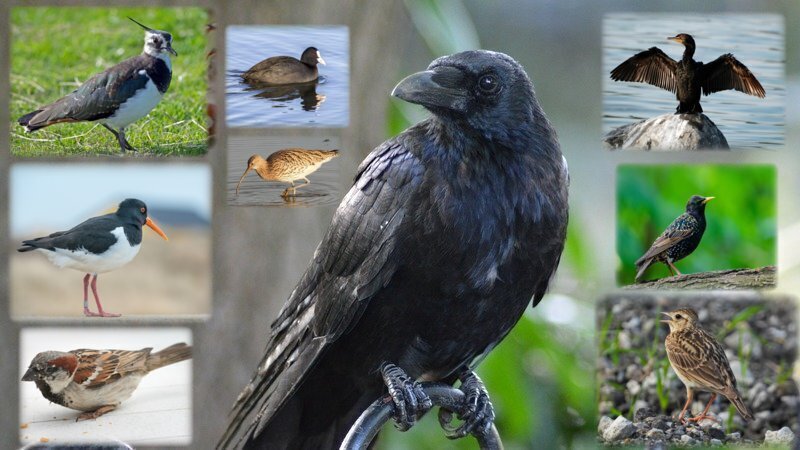
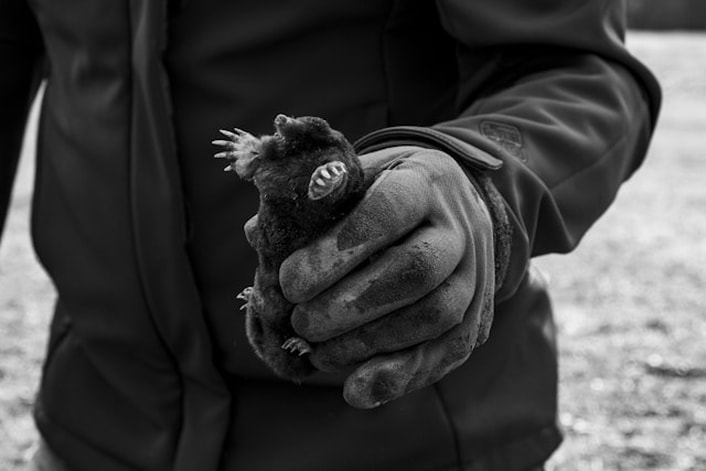
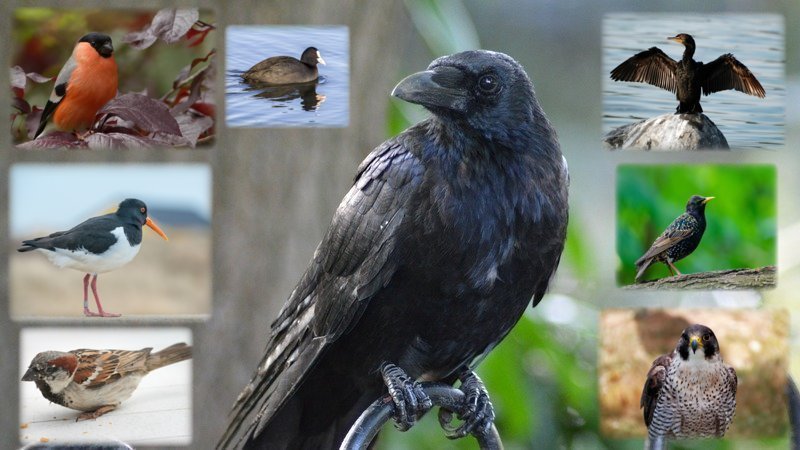
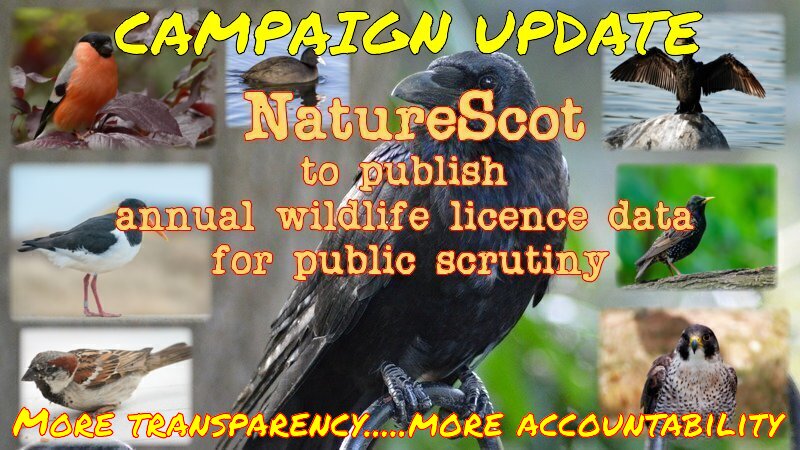
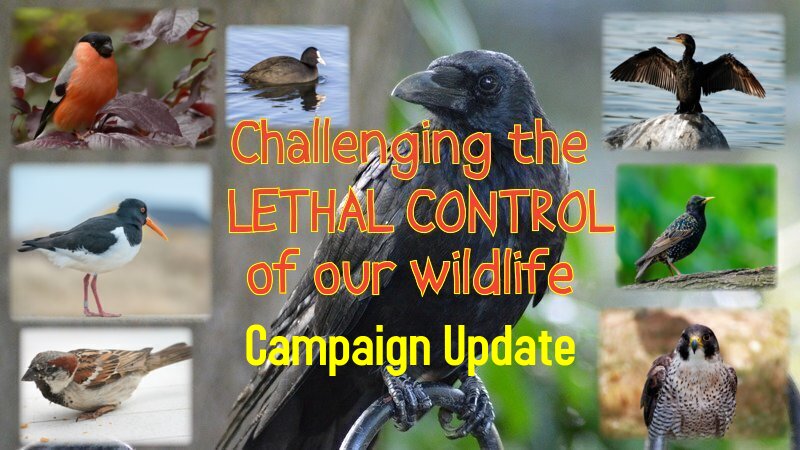
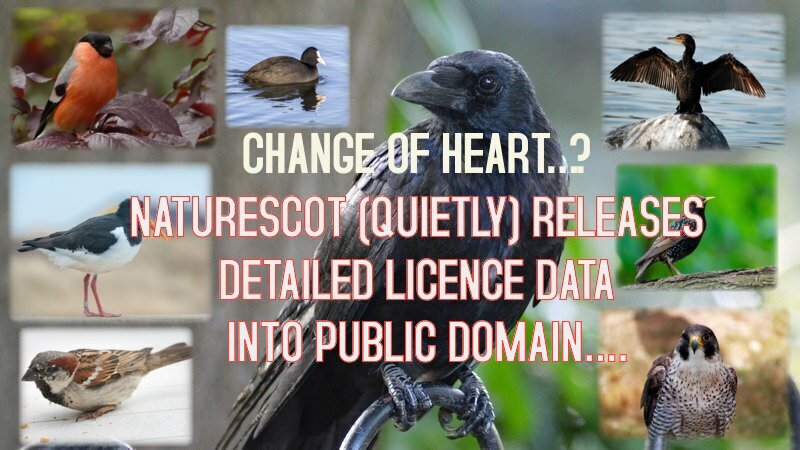
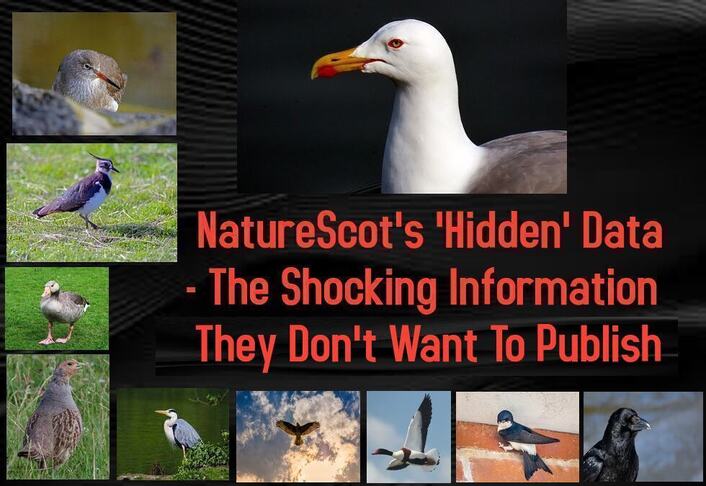
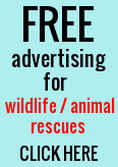
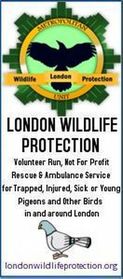
 RSS Feed
RSS Feed